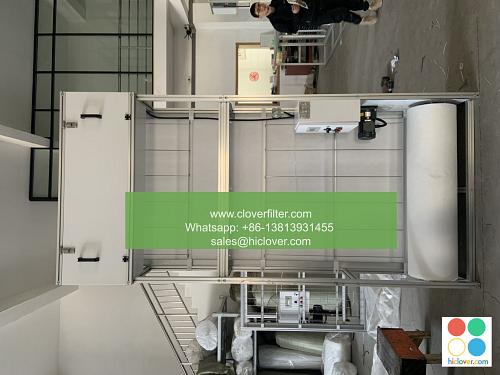The Role of Air Filter Technology in Achieving Cost Savings

Air filter technology plays a crucial role in maintaining good indoor air quality, improving health and productivity, and reducing costs. In this article, we will explore the various ways air filter technology can help achieve cost savings in different application areas, including industrial air filtration, commercial HVAC systems, and residential air purification.
Industrial Air Filtration
In industrial settings, air filter technology is used to remove particulate matter, gases, and vapors from the air, improving the overall air quality and reducing the risk of occupational diseases. By using high-quality air filters, industries can achieve significant cost savings by:
* Reducing energy consumption and equipment maintenance costs
* Extending the lifetime of equipment and reducing downtime
* Improving product quality and yield
* Reducing waste disposal and environmental costs
Some of the key technologies used in industrial air filtration include HEPA filters, activated carbon filters, and UV air purifiers. These technologies can be used in various applications, including pharmaceutical manufacturing, food processing, and chemical processing.
Commercial HVAC Systems
In commercial buildings, air filter technology is used to maintain good indoor air quality, improve occupant health and productivity, and reduce energy costs. By using high-quality air filters, commercial buildings can achieve significant cost savings by:
* Reducing energy consumption and utility bills
* Extending the lifetime of HVAC equipment and reducing maintenance costs
* Improving indoor air quality and reducing the risk of sick building syndrome
* Increasing occupant satisfaction and productivity
Some of the key technologies used in commercial HVAC systems include pleated filters, electrostatic filters, and smart air filtration systems. These technologies can be used in various applications, including office buildings, schools, and hospitals.
Residential Air Purification
In residential settings, air filter technology is used to improve indoor air quality, reduce allergy symptoms, and improve overall health and well-being. By using high-quality air filters, homeowners can achieve significant cost savings by:
* Reducing energy consumption and utility bills
* Extending the lifetime of HVAC equipment and reducing maintenance costs
* Improving indoor air quality and reducing the risk of respiratory diseases
* Increasing property value and quality of life
Some of the key technologies used in residential air purification include HEPA air purifiers, activated carbon air purifiers, and whole-house air filtration systems. These technologies can be used in various applications, including single-family homes, apartments, and condominiums.
Conclusion
In conclusion, air filter technology plays a vital role in achieving cost savings in various application areas, including industrial air filtration, commercial HVAC systems, and residential air purification. By using high-quality air filters and advanced technologies, businesses and homeowners can reduce energy consumption, extend equipment lifetime, improve indoor air quality, and increase occupant satisfaction and productivity. As the demand for clean air and energy efficiency continues to grow, the role of air filter technology in achieving cost savings will become increasingly important. It seems like you didn’t include a question or topic for me to assist with. Could you please provide more context or clarify what you would like to discuss? I’m here to help with any questions or topics you’d like to explore.

